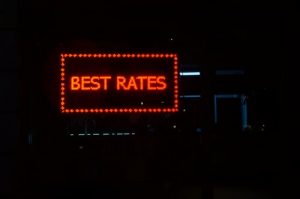Definition of Mortgage
A mortgage is a loan from a bank or financial organization that helps the borrower buy a house. The mortgage is guaranteed by the house itself. If the borrower doesn’t respect the loan, the bank can sell the house and recover its losses. Mortgage payments are usually made monthly and are made up of four components: principal, interest, taxes, and insurance. In other words, it is a loan in which the lender has the right to force the sale of the collateral and collect the income if the borrower is unable to meet the payments of the loan.
What does the mortgage mean?
We all know the concept of a mortgage from personal experience. Most people don’t have enough money to buy a house directly, so they go to a bank and apply for a loan. The bank agrees to lend them a loan if the house can be legally foreclosed and sold to repay the loan balance if the borrower does not make the payment. This is the usual arrangement that we all know. Traditional mortgages are structured over a period of 15 or 30 years and generally require a monthly payment. Most banks are required to collect property taxes and home insurance on behalf of their borrowers and transfer these amounts to local governments.
Borrowers pay the mortgage regularly to the bank, usually monthly. Payments go to the total amount of money borrowed, called principal, and interest, although the latter is tax-deductible. The process of paying a mortgage is called repayment.
Mortgages are considered secured loans, which means that if the homeowner defaults, they are secured by an asset, the home. If the borrower is late, the lenders can recover the house called foreclosure. For this reason, some lenders require borrowers to purchase insurance, such as home insurance that covers property damage or mortgage insurance that protects the lender in the event of borrower default.
Beyond the basic mortgage, the borrower has the choice between several options when he decides what suits him best:
Therefore, for most people, the typical monthly payment includes a payment in principle, interest, insurance, and tax. Insurance and tax payments are transferred to an escrow account until the lender forwards them to the appropriate agency
Example
People are not the only companies that can have a mortgage. Businesses often get loans to buy buildings and improvements. Retailers who lease stores in a mall can apply for a loan to improve parts of the store. Since the retailer does not own the building, it cannot use the property as collateral. Instead, receivables or other assets are generally used to fulfill the loan guarantee. Although improvement loans are generally not called mortgages, they follow the same principles.



